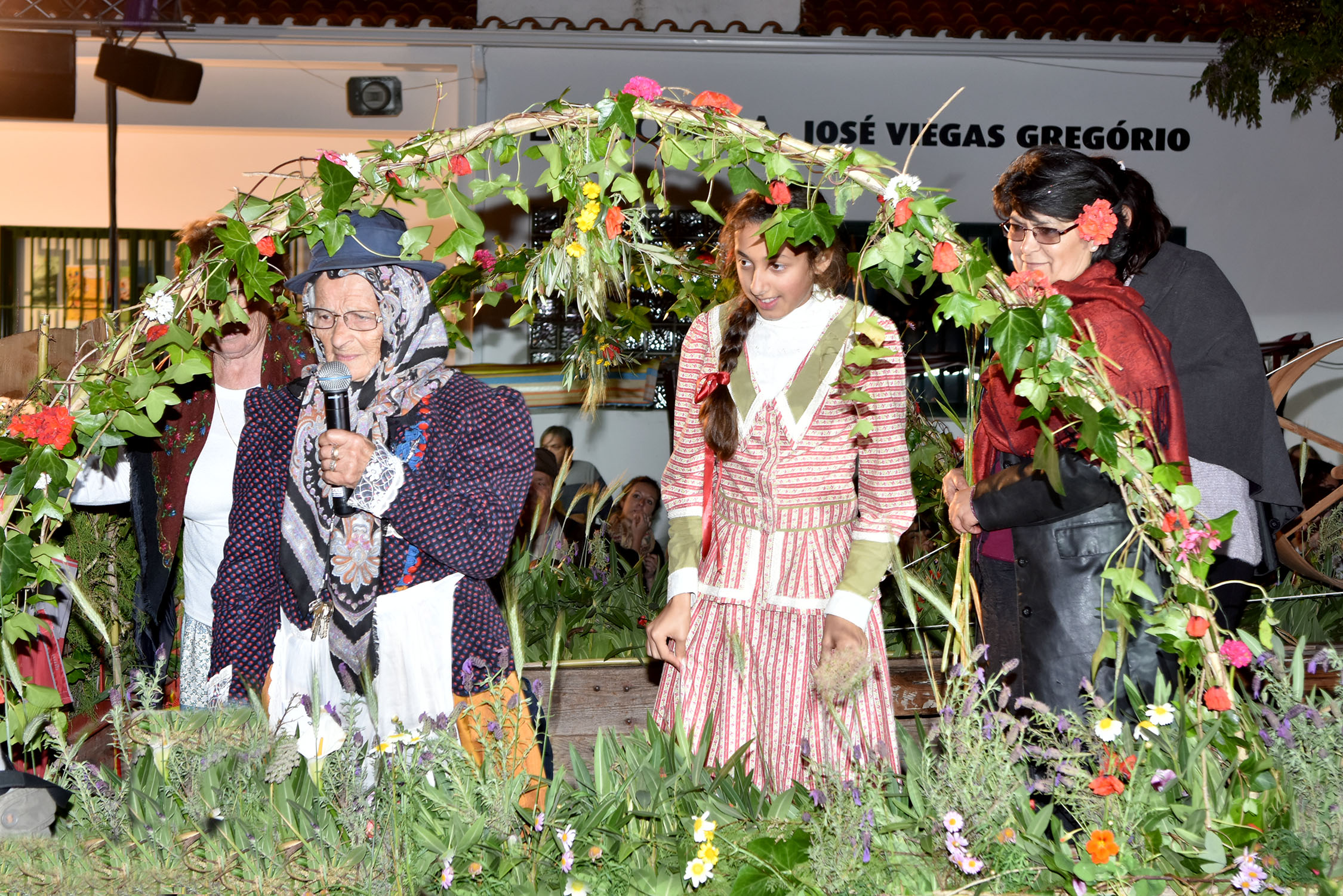 The traditional Festa da Espiga comes back to life in Salir, in the municipality of Loulé, from the 10th to the 12th of May and this year features performances by Toy, Cuca Roseta and Bezegol.
The traditional Festa da Espiga comes back to life in Salir, in the municipality of Loulé, from the 10th to the 12th of May and this year features performances by Toy, Cuca Roseta and Bezegol.
Thursday Espiga – the date on which Loulé Municipality Day is also celebrated – is the high point of the festivities, with the traditional ethnographic parade, but for three days there are many proposals, whether in terms of music or folklore, gastronomy or handicraft, for those visiting Salir looking for the genuine Algarve.
On Espiga Day, May 10th, when the population goes to the fields to pick up the traditional corncob, from 9:00 am, Salir is the stage for a mountain bike tour and a pedestrian walk “Trilhos da Espiga”.
Both initiatives will allow participants to have contact with the environmental heritage and natural beauty of Serra do Caldeirão.
The opening of Tasquinhas with delicacies and mountain snacks takes place at 13 pm, followed by the opening of exhibitions of regional products and the performance of the group Artesãos da Música.
At 16 pm, the most awaited moment takes place: the ethnographic parade representing the main agricultural and artisanal activities of this parish, some of them on the brink of extinction, from sowing, weeding, harvesting, threshing, bread making, arbutus picking and distillation, beekeeping and cork extraction, fig, almond and carob retail, linen, wool, palm, esparto, wicker basketwork.

During the parade, the poets Popular people will declaim poems or quatrains made improvised or prepared, in a joking message record to the municipal officials, to ask for or thank the works done in the land.
At this time, the Folklore Ranch “As Mondadeiras das Barrosas” and the Ethnographic Group of Serra do Caldeirão (Cortelha) are also participating.
At 21 pm, there is a ball with Rui Soares&Lau and, at 00 pm, he takes to the stage Toy, one of the most important names in popular music in Portugal.
On Friday, May 11th, the Festa da Espiga is dedicated to seniors with an afternoon full of entertainment.
The nightly version of the traditional ethnographic parade takes place this Friday, from 20:30 pm, followed by a Grande Noite de Fado, with Filipa Nobre, the project “Amália Semper” that brings together various voices of Fado in the region, and Cuca Roseta, one of the biggest names in the new vanguard of fadistas. The night ends with the animation of the traditional ball with Gonçalo Tardão.
The last day of festivities, Saturday, May 12th, will be more directed towards the youngest, with a day filled with activities for children and young people: the III “Os Espiguinhas” Soccer Tournament and the Espiguinhas afternoon.
As it has been emphasized in recent years, the Festa da Espiga ends with the sounds of modern Portuguese music.
For this year the proposals are Bezegol&Rude Bowy Banda, artist «who, with an unmistakable hoarse tone, is today one of the great urban poets of the national musical panorama», Throes+The Shine, who bring to the stage the electrifying energy of the singular fusion of kuduro with rock and Riot (DJ7) that, without limit of genres or styles, presents in their performances all the most recent sounds of the Current Dance Music», says Câmara de Loulé.
All initiatives of the Espiga Festival have free entry.
According to the liturgical calendar, the Thursday of Ascension commemorates the ascension of Jesus Christ to Heaven, ending a cycle of forty days after Easter. But on this day we also celebrate Espiga Day or Espiga Thursday.
Especially in the south of the country, it is a tradition for people to go to the fields to pick up the ear of wheat and other wild flowers, making branches symbolic of the fecundity of the land and the joy of living.
 A few ears, usually wheat, symbolize abundance, poppies, roses, daisies and marigolds symbolize beauty and the olive branch symbolize peace.
A few ears, usually wheat, symbolize abundance, poppies, roses, daisies and marigolds symbolize beauty and the olive branch symbolize peace.
This branch, in a number of variable combinations depending on the location, is hung inside the house and kept there for a year, until it is replaced by the “ear” of the following year.
Salir, one of the most typical rural parishes in the municipality of Loulé, makes the Festa da Espiga one of the main tourist and ethnographic posters in the Algarve region.
The Espiga Festival in Salir began on May 23, 1968, organized by the Parish Council, more specifically by the then president José Viegas Gregório, a charismatic figure and a great promoter of his native land. The success of the first edition, presided by the then Civil Governor of Faro Romão Duarte and Eduardo Pinto, president of the Loulé City Council at the time, surpassed all expectations of the organization.
Since then, Salir has made Espiga Day a major regional event, welcoming thousands of outsiders who come here to enjoy handicrafts, gastronomy, folklore, ethnography, poetry and everything that is most genuine in the rural interior. of the Algarve. The importance of this event as a tourist attraction for the interior of the Algarve was such that the Municipality of Loulé changed its municipal holiday to this day.
In Salir, the Dia da Espiga, which in a way marks the beginning of the harvest season, assumes a special importance, as this date is used to bring the most characteristic traditional manifestations of this rural parish to the general public. The participants in this unique show in the country prepare their cars in advance and during the parade they will offer some of the products they carry.
One of the peculiarities of the Espiga Festival is that the population also has the possibility to leave a message, in the form of a poem or prepared quatrain or just improvised, to the government entities present, to ask for or thank the works done on earth.
In fact, the executives of the Loulé City Council are using this day to inaugurate a road, a school, a basic sanitation project or other social equipment, thus contributing to further enhance the festivities.
But when these works do not materialize, criticisms in a joking tone are launched to government officials in the municipality and the region.


















Comments